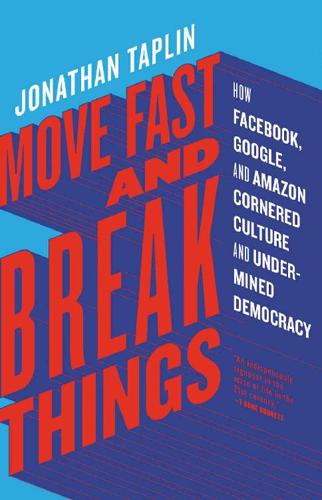
Move Fast and Break Things: How Facebook, Google, and Amazon Cornered Culture and Undermined Democracy
by
Jonathan Taplin
Published 17 Apr 2017
But the brilliant essayist Mark Greif notes, “Anytime your inquiries lead you to say, ‘At this moment we must ask and decide who we fundamentally are, our solution and salvation must lie in a new picture of ourselves and humanity, this is our profound responsibility and a new opportunity’—just stop.” That is exactly what I propose: let’s stop and consider a strategy of resistance to techno-determinism. Any historian will tell you that revolutions often overshoot their marks, a statement the citizens of Paris in 1789 or Moscow in 1925 would have agreed with. The digital revolution is no exception. CHAPTER TWELVE The Digital Renaissance He not busy being born is busy dying. —Bob Dylan 1.
…
So often when I have given a speech on this topic to musicians, book publishers, moviemakers, and authors, I get what I have come to call a Stockholm syndrome response—“Isn’t this just the way things are? Don’t we have to resign ourselves to working with Google, Facebook, and Amazon?” The audiences seem to parrot the techno-determinism that is, after all, just one way of understanding the problem. I think big changes could happen if we approach the problem of the monopolization of the Internet with honesty, a sense of history, and a determination to protect what we all agree is important: our cultural inheritance. We all need the access to information the Internet provides, but we need to be able to share information about ourselves with our friends without unwittingly supporting a corporation’s profits.
…
Yuval Noah Harari calls their project Dataism: Dataists further believe that given enough biometric data and computing power, this all-encompassing system could understand humans much better than we understand ourselves. Once that happens, humans will lose their authority, and humanist practices such as democratic elections will become as obsolete as rain dances and flint knives. We need to confront this techno-determinism now—with real solutions—before it is too late. I undertake the pursuit of these solutions with both optimism and humility. Optimism because I believe in the power of rock and roll, books, and movies to upset the world. As the writer Toni Morrison observed, “The history of art, whether it’s in music or written or what have you, has always been bloody, because dictators and people in office and people who want to control and deceive know exactly the people who will disturb their plans.
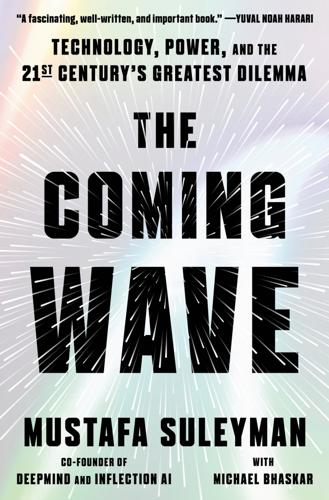
The Coming Wave: Technology, Power, and the Twenty-First Century's Greatest Dilemma
by
Mustafa Suleyman
Published 4 Sep 2023
From curiosity to crisis, fortune to fear, at its heart technology emerges to fill human needs. If people have powerful reasons to build and use it, it will get built and used. Yet in most discussions of technology people still get stuck on what it is, forgetting why it was created in the first place. This is not about some innate techno-determinism. This is about what it means to be human. Earlier we saw that no wave of technology has, so far, been contained. In this chapter we look at why history is likely to repeat itself; why, thanks to a series of macro-drivers behind technologies’ development and spread, the fruit will not be left on the tree; why the wave will break.
…
Social media is just the most recent reminder that technology and political organization cannot be divorced. States and technologies are intimately tied together. This has important ramifications for what’s coming. While technology doesn’t simplistically push people in a predetermined direction, it’s not naive techno-determinism to recognize its tendency to afford certain capabilities or see how it prompts some outcomes over others. In this, technology is one of the key determinants of history, but never alone and never in a mechanistic, inherently predictable way. It doesn’t superficially cause given behaviors or outcomes, but what it produces does guide or circumscribe possibilities.
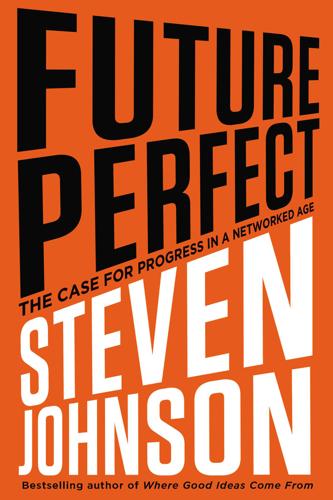
Future Perfect: The Case for Progress in a Networked Age
by
Steven Johnson
Published 14 Jul 2012
Twitter didn’t even formally recognize the hashtag convention for more than a year after users first started tagging their tweets with it. Occupy Wall Street as a meme; Twitter as a political platform; the hashtag as a way of organizing information: all three came from the edges of the network, not the center. The temptation, of course, is to draw a straight line of techno-determinism between the Seattle protests and the global wave of pro-democratic and egalitarian protest that swept across the planet in 2010 and 2011: from the Arab Spring to the Spanish Revolution to the Occupy movement. The prediction back in 2000 would have gone something like this: because the Internet abhorred hierarchies and top-down command structures, hierarchies and command structures would come under increasing attack, by organizations and movements that looked like Baran Webs and not Legrand Stars.
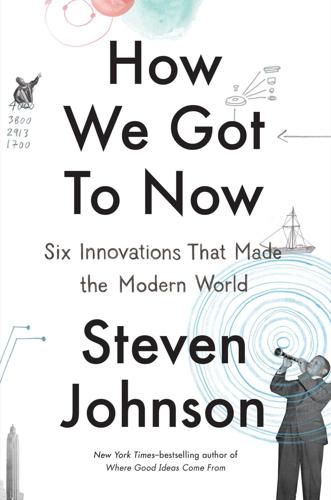
How We Got to Now: Six Innovations That Made the Modern World
by
Steven Johnson
Published 28 Sep 2014
They come into being through networks of collaboration, and once unleashed on the world, they set into motion changes that are rarely confined to single disciplines. One century’s attempt to invent flash photography transformed the lives of millions of city dwellers in the next century. Riis’s vision should also serve as a corrective to the excesses of crude techno-determinism. It was virtually inevitable that someone would invent flash photography in the nineteenth century. (The simple fact that it was invented multiple times shows us that the time was ripe for the idea.) But there was nothing intrinsic to the technology that suggested it be used to illuminate the lives of the very people who could least afford to enjoy it.
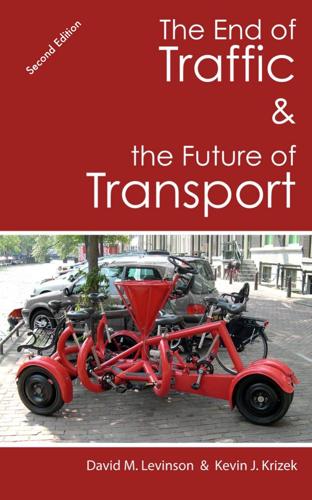
The End of Traffic and the Future of Transport: Second Edition
by
David Levinson
and
Kevin Krizek
Published 17 Aug 2015
Thus, the privately owned automobile will remain important for rural, small town, and suburban markets that cannot justify the fixed cost of high capacity transit services nor have a thick enough market to enable vehicles on-demand within a timeframe customers will accept. However that auto or light truck will be automated, and will eventually be electric as well. ———————— "There is an urgent need to move beyond the techno-determinism that surrounds discussions about innovation in transportation, that have become bogged down in a Silicon Valley versus City Hall narrative, the innovate upstart versus the hidebound local regulator." — Anthony Townsend340 In previous chapters we described what has happened, or more speculatively, what might happen.
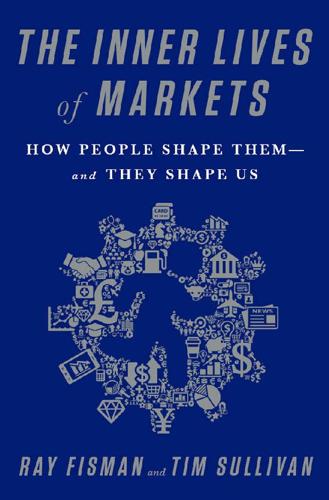
The Inner Lives of Markets: How People Shape Them—And They Shape Us
by
Tim Sullivan
Published 6 Jun 2016
We’ve experienced some radical changes—changes that have taken us far beyond the world of Percy P.’s. The way the story is often told, we’ve gotten from there to here because of technological innovation—internet marketplaces replacing Main Street and the mall, Uber and Airbnb disrupting the taxi and hotel industries. But there’s more to this story than techno-determinism. As important as technology is, it’s only one of the driving forces behind the changes we’ve witnessed. We’re here to tell you about a parallel set of innovations and insights that have also played a central role: ideas that started in the academic study of economics over the past half century and have had an outsized effect on how scarce goods are allocated—how, that is, we get the stuff that we want.
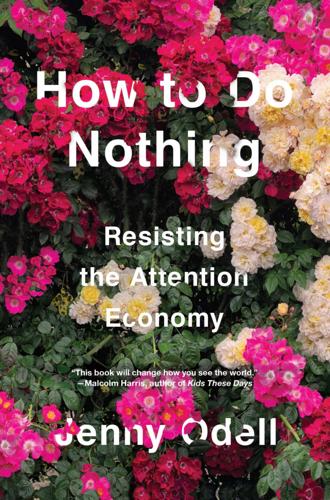
How to Do Nothing
by
Jenny Odell
Published 8 Apr 2019
Recall that the Angel of History, beyond disinterested preservation, seeks “to awaken the dead and to piece together what has been smashed.” To tear up the concrete or take down the freeway is to start to piece a community back together, though it may not (ever) look the same again. Against the odds and the crush of techno-determinism, things keep growing that “small crack in the continuum of catastrophe.” Nature and culture still abound with forms that, like Zhuang Zhou’s useless tree, resist appropriation while sheltering the life beneath them. The newly planted alder trees are growing along Sausal Creek. Mak-’amham, the Ohlone food pop-up, opened a permanent café this year, and the line spilled out the door on opening day.

Ways of Being: Beyond Human Intelligence
by
James Bridle
Published 6 Apr 2022
As scientific practice has matured, we’ve come to understand the value of interpretation, situated knowledge and trained judgement; but this fallacy has been perpetuated by our technologies, which flatten and lump together the myriad different expressions of the world. The power of these tools to make the world legible to humans in turn contribute to techno-determinism and network power: the belief that the tools produced in the most dominant societies by the most dominant groups are not only the best for everyone, but are inevitable and unassailable. And so, in contrast to the original intent of scientific investigation, a mismatch arises between the world as we perceive it, and the world as it actually is.
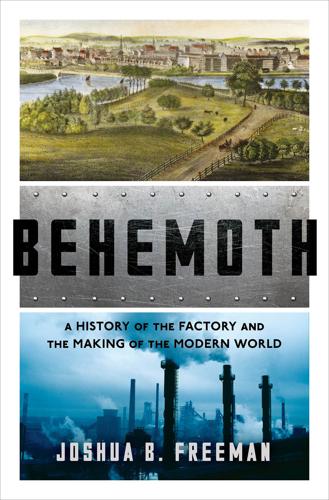
Behemoth: A History of the Factory and the Making of the Modern World
by
Joshua B. Freeman
Published 27 Feb 2018
If the coming of the giant factory was associated with visions of utopia (along with dystopian fears), its passing has been associated with social malaise and shriveled imagination. The Industrial Revolution and the giant factory have left in their wake a continuing belief in a teleology of progress and techno-determinism. But for many, the future has already come and gone, perhaps leaving them with sneakers and a smartphone, but with little hope or belief in their ability to create a new world, a post-factory world that builds on the extraordinary advances of the giant factory to forge a new and different kind of modernity, one more democratic and more sustainable, socially, economically, and, perhaps most important, ecologically.
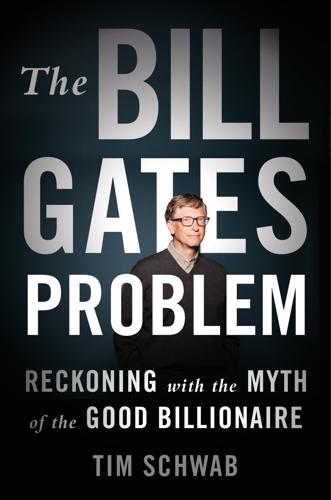
The Bill Gates Problem: Reckoning With the Myth of the Good Billionaire
by
Tim Schwab
Published 13 Nov 2023
Velislava Hillman, a researcher at the London School of Economics and Political Science, has tracked the ambitions of this burgeoning data surveillance apparatus, much of which is financially tied to Gates—“collecting granular data about children so they can profile children and identify all kinds of issues from the social to the emotional, what their conduct is in school, what their behavior, is, whether they’re the child of an immigrant family, how they do in school academically and so on.” All this data gets run through complex soothsaying algorithms, Hillman said in an interview, “supposedly telling the teacher which student is likely to cheat, which student is likely to be depressed at some point in time. I mean, we’re talking about Minority Report,” she added. In this “techno-determined future,” Hillman told me, kids could be tracked from a young age into a specific career and maybe even a specific company. In her research, she has found examples where schools embrace workforce development programs that explicitly partner with companies like Amazon and Cisco. Instead of learning art and music, students are learning technical skills these companies need.
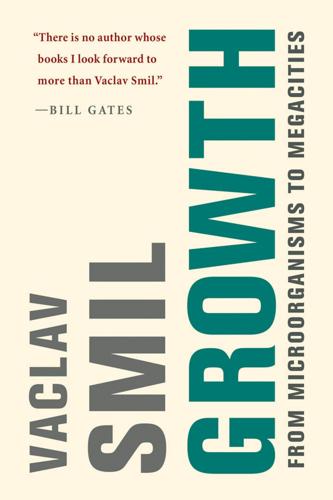
Growth: From Microorganisms to Megacities
by
Vaclav Smil
Published 23 Sep 2019
(Marchetti 1977, 348) Two years later he reiterated the perfection of historic fits and concluded that “it is as though the system had a schedule, a will, and a clock” and that it is capable of reabsorbing all perturbations “elastically without influencing the trend” (Marchetti and Nakicenovic 1979, 15). Marchetti’s extreme techno-determinism had an unerring “system” in charge—except it was not. Even in the late 1970s, the proposed pattern did not appear as smooth as claimed, and during the 1970s powerful forces (changing prices and demand, new techniques) began to transform the global energy setup. Four decades later, the global energy system is far off its supposedly “completely predetermined” schedule (figure 1.19).